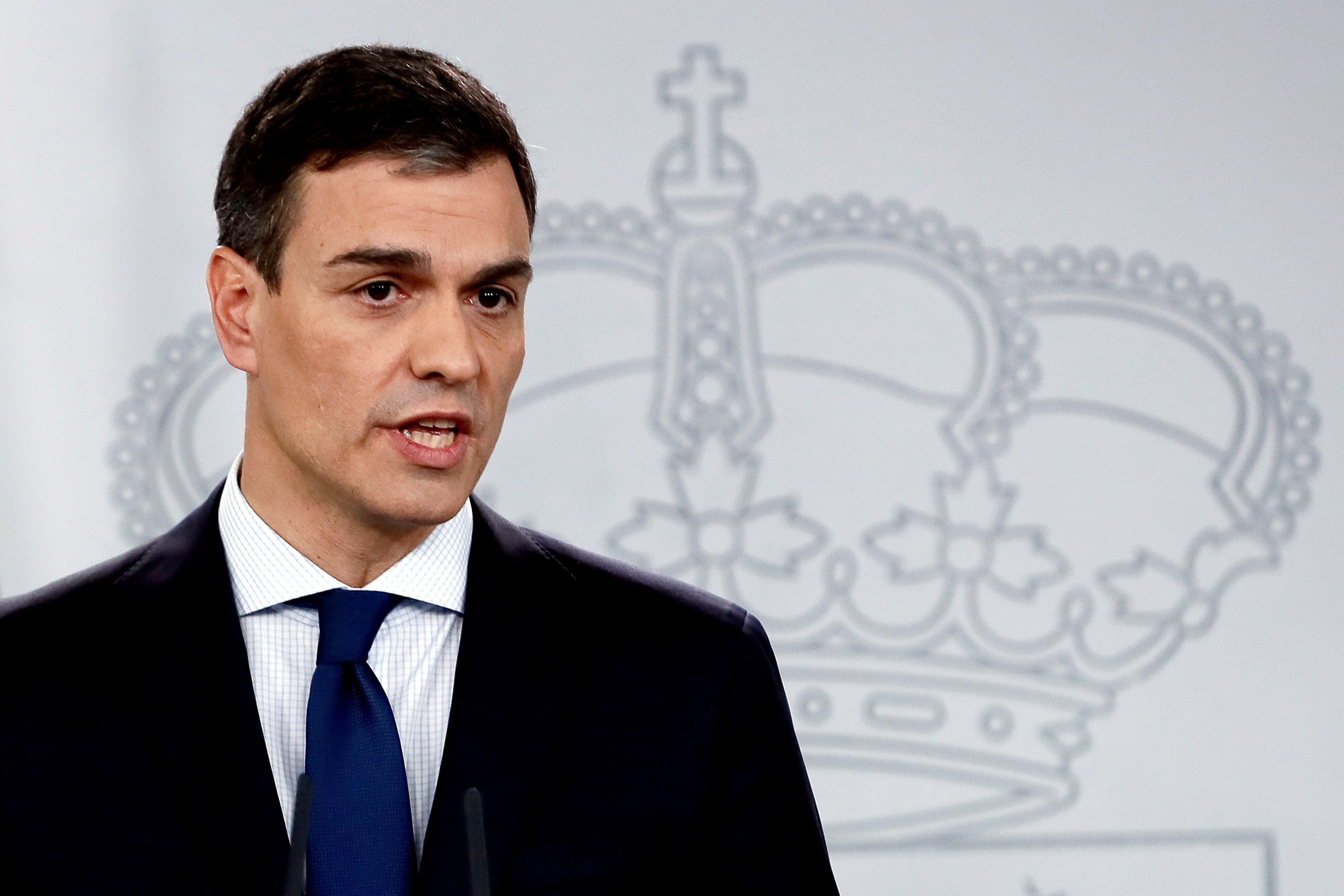"The reflection of the best that our society aspires to be, that has parity, since half of our citizens are women, that's open to the world, that's anchored to the European Union and that's highly qualified." That's how Spain's new prime minister, Pedro Sánchez, defines the cabinet which he announced this Wednesday evening at the Moncloa government palace after communicating it to king Felipe VI.
The prime minister highlighted the fact that 11 of the 17 members are women "for the first time in history", many of whom hold important portfolios like the Treasury and Defence, almost precisely three months after the huge protests Spain saw on International Women's Day this year. Among the main challenges for his cabinet, he cites "the modernisation of Spain, making it sustainable [and] the social and territorial cohesion damaged in recent years".
Minister of Foreign Affairs, the European Union and Cooperation: Josep Borrell Fontelles
Minister of Justice: Dolores Delgado García
Minister of Defence: Margarita Robles Fernández
Minister of the Treasury: María Jesús Montero Cuadrado
Minister of the Interior: Fernando Grande-Marlaska Gómez
Minister of Public Works: José Luis Ábalos Meco
Minister of Education and Professional Training; Government spokesperson: María Isabel Celaá
Minister of Labour, Migration and Social Security: Magdalena Valerio Cordero
Minister of Industry, Trade and Tourism: Reyes Maroto Illera
Minister of Agriculture, Fishing and Food: Luis Planas Puchades
Minister of the Presidency, Relations with the Legislature and Equality: María del Carmen Calvo Poyato
Minister of Territorial Policy and the Civil Service: Meritxell Batet Lamaña
Minister for the Ecological Transition: Teresa Ribera Rodríguez
Minister of Culture and Sport: Màxim Huerta Hernández
Minister of the Economy and Business: Nadia Calviño Santamaría
Minister of Health, Consumption and Social Well-being: Carmen Montón Giménez
Minister of Science, Innovation and Universities: Pedro Franscisco Duque Duque
Changes highlighted by Sánchez include Culture again having its own ministry (previously it was lumped in with Education), which he described as a "source of richness and job creation", and the foreign ministry including the term "European Union" for the first time. He also said a High Commission for Child Poverty will be created, linked to the presidency department, being one of the main challenges of his premiership.
BIOGRAPHIES
Josep Borrell is an ex-president of the European Parliament, aeronautical engineer, and has a doctorate in economic science from Complutense University of Madrid.
Carmen Calvo has a doctorate in constitutional law. She was culture minister in José Zapatero's first government (2004-07) and is currently PSOE's federal secretary for equality, as well as one of Sánchez's closest allies in the party and a noted defender of feminism.
José Luis Ábalos, another of those Sánchez trusts the most. As well as being a deputy in the Spanish Congress, he's been PSOE's secretary general in Valencia (2012-17) and the party's spokesperson in Valencia city hall.
María Jesús Montero, currently Andalusian treasury minister, is close to Andalusia's president, Susana Díaz. This choice could be interpreted in the context of Sánchez's attempt to move towards a new model of funding Spain's autonomous communities.
Carmen Montón, currently a minister in the Valencian government. Her nomination is reported to have followed former Basque minister Rafael Bengoa turning down the offer. Montón was part of Sánchez's executive committee during his first term as PSOE's secretary general. She stayed faithful when 17 members resigned to force Sánchez out in 2016 (he was later voted back in by the party grassroots).
Nadia Calviño has been the European Commission's director-general for budget since 2014 and 2004-6 was director-general for competition in Zapatero's government. She's also been a professor at Complutense University of Madrid.
Teresa Ribera directed the Spanish Climate Change Office 2004-8, whilst Zapatero was prime minister. She worked closely with Sánchez drafting the party's manifesto for the last general election.
Pedro Duque, from Madrid, 55 years old, is an aeronautical engineer and was the first Spanish astronaut.
Fernando Grande-Marlaska, a judge, has been president of the National Audience court's criminal chamber since 2012 and a spokesperson for the General Council of the Judiciary. He's a conservative judge whose name was even brought up as a possible attorney general for Mariano Rajoy.
Margarita Robles, currently the party's spokesperson in Congress, is a magistrate with a long career who rose to become a spokesperson for the General Council of the Judiciary.
Isabel Celaá from the Basque country, is a professor who was born in Bilbao in 1949, was Basque minister for education, universities and research from 2009-12.
Magdalena Valerio graduated with a degree in law, becoming a civil servant in the management of the social security system and INEM (National Employment Institute). She has been a Congress deputy for the period which saw the latest labour and pension reforms, a city councillor in Guadalajara and held various ministries in Castile-La Mancha, including labour and employment.
Dolores Delgado has been a prosecutor for 28 years, 25 of which at the National Audience court working on drug trafficking and ETA and jihadist terrorism.
Luis Planas was Andalusia's agriculture minister and Spain's ambassador to Morocco. He tried to stand against Susana Díaz in PSOE's primaries for president of Andalusia in 2013.
Reyes Maroto is secretary for sustainable development at PSOE Madrid and its spokesperson for the budget, economy, employment and the treasury in the Madrid chamber.
Màxim Huerta Hernández is a journalist and television presenter.
Meritxell Batet is a member of the Catalan branch of PSOE and a professor of Constitutional Law.

